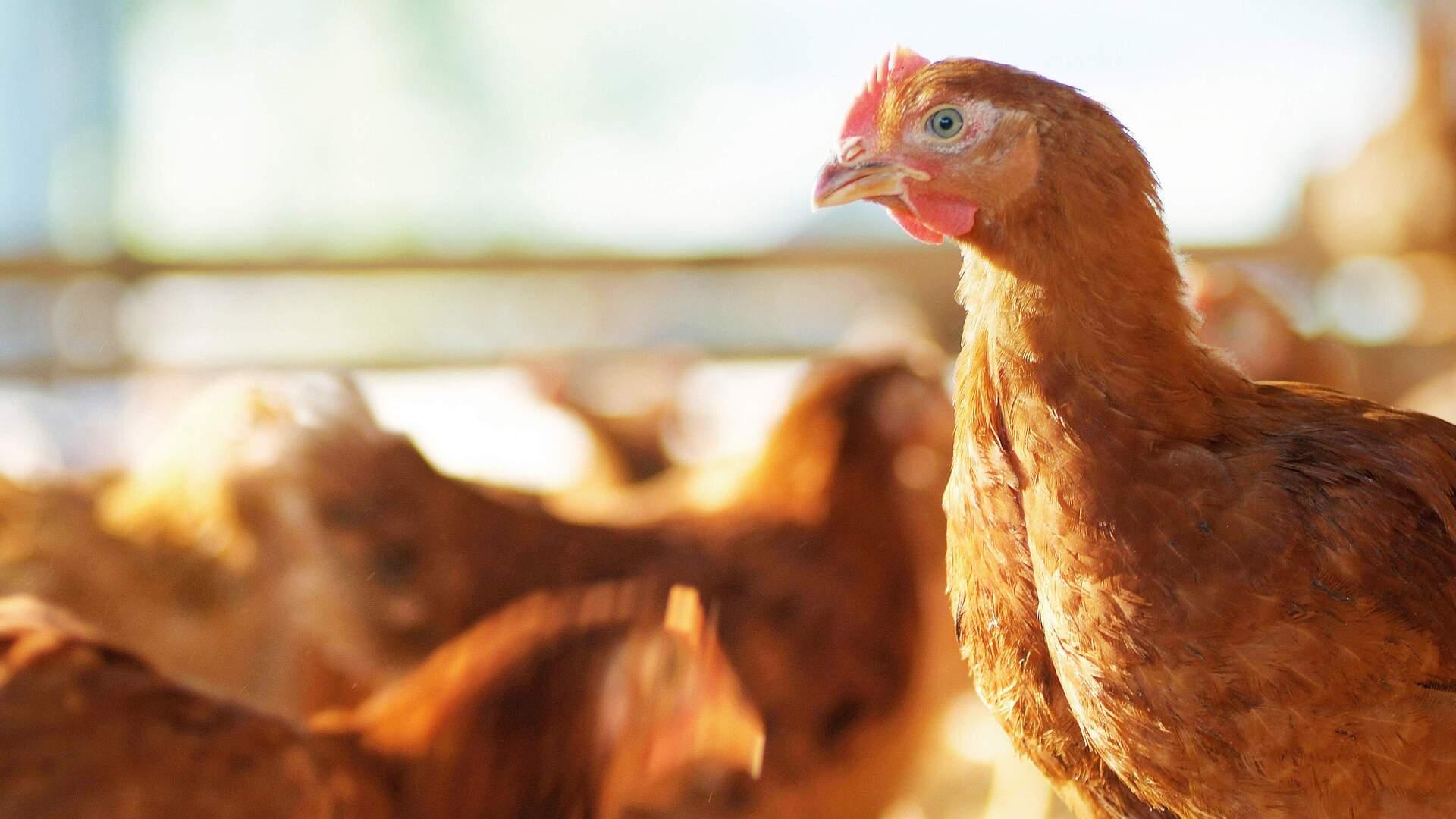Working for healthy animals

The team consists of two vets, a very manageable size at first glance. But this first impression is deceptive. The same two vets oversee the entire poultry production chain. This is precisely what makes the job of Kathrin Kühni, Head of Health Services, so special. In integrated poultry production, her work begins with the care of broiler chicks and continues with the vaccination of the parent animals through to questions of hygiene, ventilation and even barn construction.
How do you manage that in pairs?
"With hundreds of partner fattening farms, we wouldn't get anywhere on our own. We have to be seen more as experts and a contact point for all employees and partners involved in rearing and caring for the animals. As an extended arm, we are helped by advisors who inform us about the situation of the animals in the stables."
A typical deployment of the health service is triggered by the fattening farms. The fatteners are alerted by an increasing number of culls after stabling. An advisor is then alerted, who makes rounds on site, sorts out sick animals, examines dead animals and generally looks out for certain signs. Thanks to this information, the vets can order measures such as the administration of antibiotics. Most of the time, they look after the parent animals directly. Kathrin Kühni explains that the focus is on giving the broiler chicks the best possible start. Vaccinations are an important tool here. "We handle each animal twice until immunity is guaranteed." Four to five advisors and assistants help her with a vaccination campaign of up to 8,000 animals.Diseases and pathogens are part of the day-to-day work of the health service. "It's not always easy and sometimes tragic," says Kathrin Kühni. She talks about a herd in which antibodies against Newcastle disease were found. Switzerland has a zero-tolerance policy for this disease. However, vaccination against it is permitted abroad, and antibodies are also produced as a result. Unfortunately, this flock was inadvertently vaccinated in the foreign hatchery. Kathrin Kühni sighs: "Nobody wants to kill animals that are actually healthy. But in this case, our hands were simply tied by law."Do you have an overarching goal in your work?
"We only want to intervene as little as possible, but certainly as much as necessary. That's why we also sit down with the people from animal production, the consultants or the planning department and shed light on critical points in the production chain. If we want to achieve our goal, we have to keep an eye on the entire path from the stables to the slaughterhouse."
They also rely on a network of specialists for veterinary issues. More complicated and critical cases are discussed and resolved in collaboration with other veterinarians or the National Reference Center for Poultry and Rabbit Diseases. "We are part of many processes and are integrated into a wide variety of teams," says Kathrin Kühni. The diversity of the health service's tasks is impressive. It contributes its expertise wherever it is needed - and does so in the interests of healthy animals.